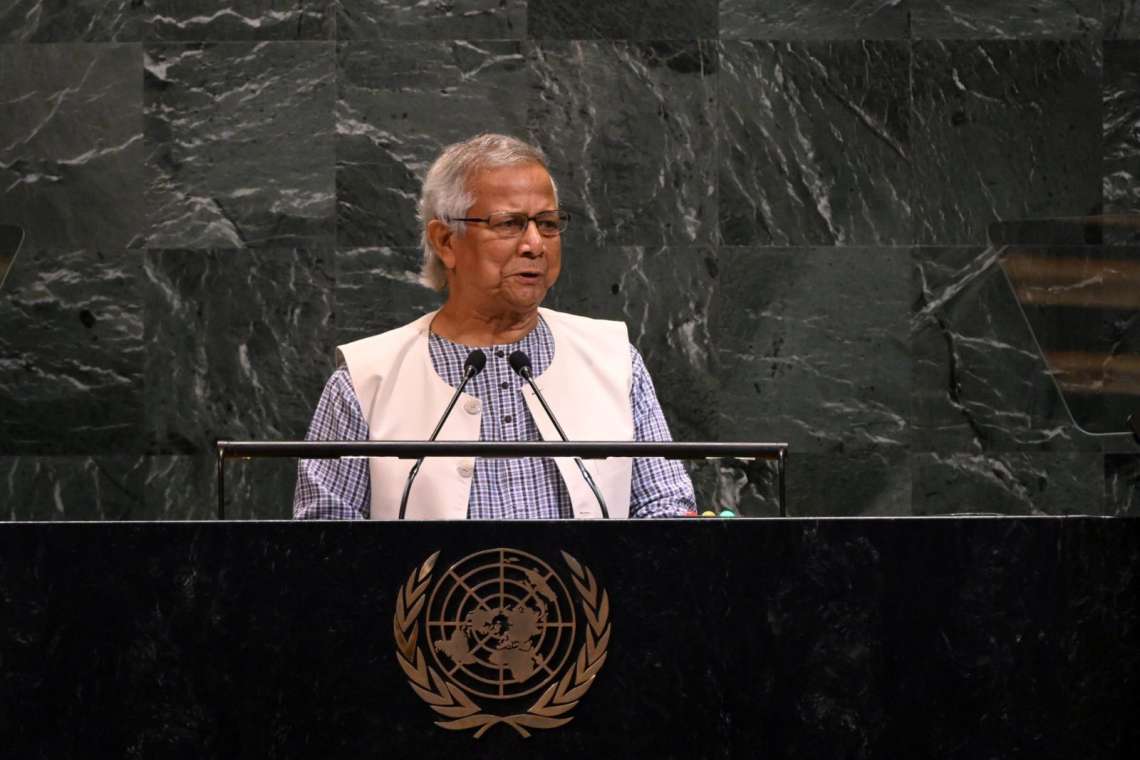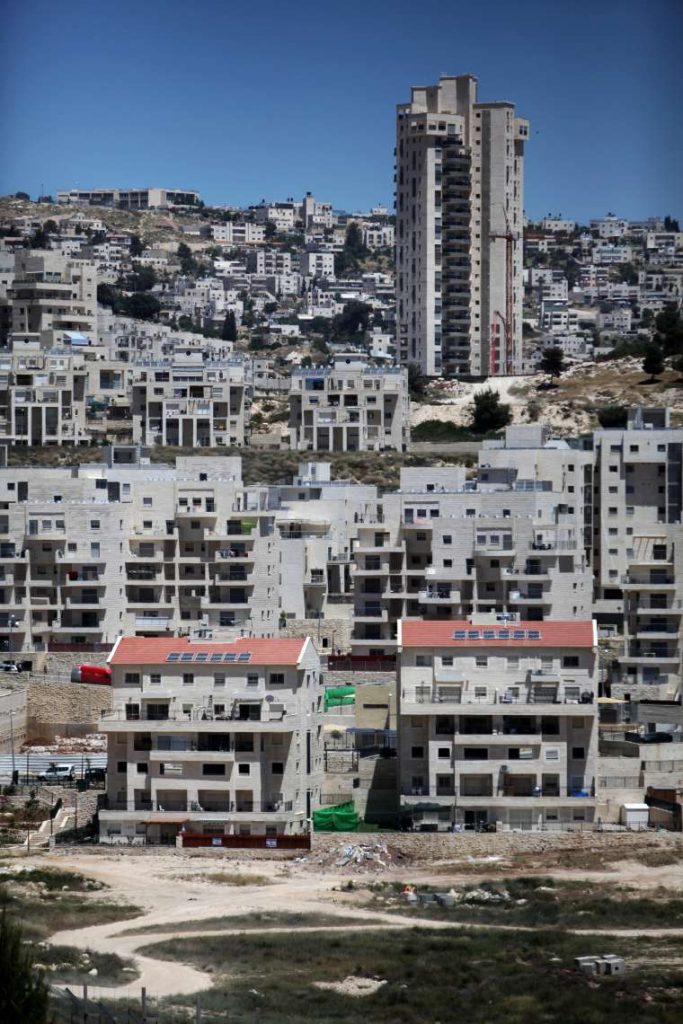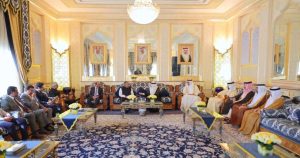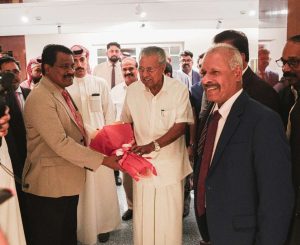At the UNGA, Bangladesh interim leader Muhammad Yunus decries Gaza “genocide,” warns of Rohingya hunger crisis, and hails people power, as Hasina supporters protest outside in New York.
Bangladesh’s interim Chief Adviser Muhammad Yunus addressed the United Nations General Assembly (UNGA) on Friday, delivering a speech that underscored both his country’s internal turmoil and pressing international crises. The address, his second at the world body since last year’s youth-led uprising toppled Sheikh Hasina after 15 years in power, was overshadowed by protests outside the UN headquarters in New York.
Demonstrators supporting the former prime minister gathered to denounce Yunus, questioning his legitimacy and accusing his interim administration of failing to safeguard human rights, particularly for religious minorities. The protests highlighted the deep political fractures in Bangladesh, where Yunus has led a caretaker government tasked with steering the country until fresh elections expected next year.
Critics of Yunus accuse his government of turning a blind eye to attacks on minorities, particularly Hindus, and of tolerating the influence of radical groups such as Jamaat-e-Islami. India, which is currently hosting Hasina, has expressed concern over the safety of minorities in Bangladesh, adding strain to Dhaka’s bilateral relations with New Delhi. Yunus has in turn blamed Hasina for years of unrest and called for her extradition to face charges.
Inside the General Assembly, however, Yunus sought to cast Bangladesh’s story as one of resilience and people power. “Last year, in this august assembly, I spoke to you from a country that had just witnessed a popular uprising. I shared with you our aspirations for transformation,” he said. “Today, I stand here to tell you how far we have come on that journey. Our story matters because it is a reminder of the extraordinary power of ordinary people.”
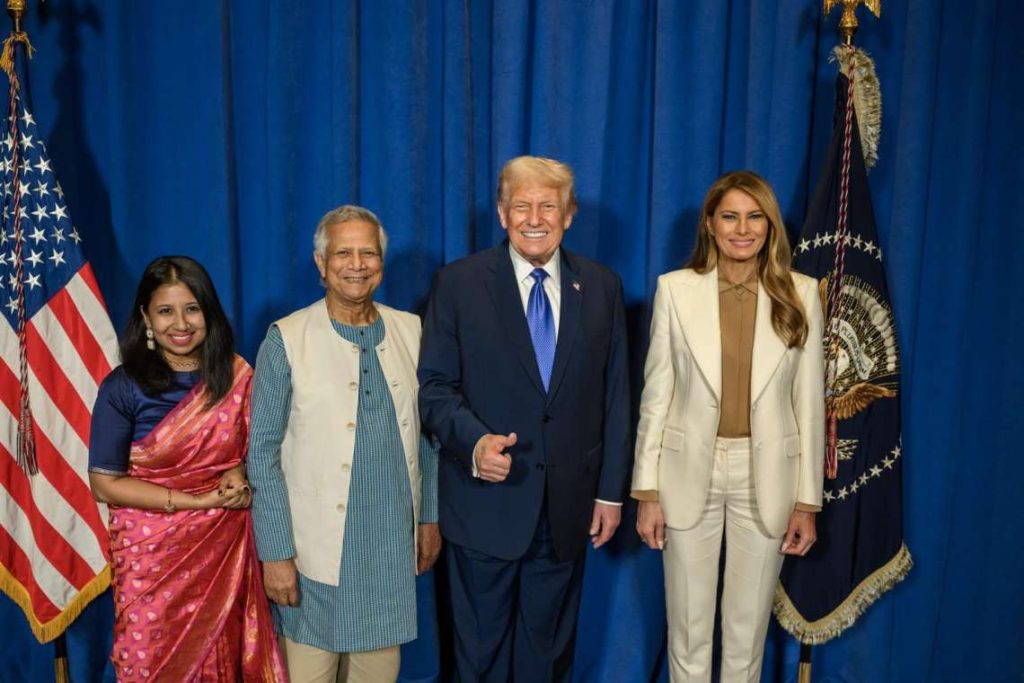
Yunus highlighted Bangladesh’s demographic weight, noting that nearly three out of every hundred people on the planet are Bangladeshi, but stressed that the country’s true significance lay in its determination to overcome adversity.
Turning to the economy, Yunus placed migrant workers at the centre of his vision. With more than seven million Bangladeshis living abroad, their remittances—estimated at around USD 18 billion in 2019—remain critical for both the national economy and global labour markets. “Migration is mutually beneficial: good for us, good for them,” Yunus argued, urging host nations to show empathy and ensure protection for migrant labourers who fill vital roles abroad.
In his most forceful remarks, Yunus aligned Bangladesh with the findings of a UN human rights commission on Gaza, warning that humanity was witnessing “a genocide happening live.” He criticised the lack of effective international action, declaring: “If this continues, neither future generations nor history will forgive us.” His comments placed Bangladesh firmly among countries pressing for stronger global intervention to halt the war.
Yunus also drew attention to the ongoing crisis in neighbouring Myanmar, describing it as a “deep concern for the entire region.” He condemned the continued persecution of the Rohingya minority in Rakhine State and called for a political settlement that would integrate the community as equal citizens. Bangladesh currently hosts nearly one million Rohingya refugees, most in sprawling camps in Cox’s Bazar, but Yunus warned that international aid is dwindling. Citing figures from the World Food Programme, he said refugee rations could fall to just $6 per person per month, a level he described as catastrophic. “Without urgent new funding, hunger, malnutrition and desperation will worsen,” he said.
Concluding his speech, Yunus emphasised the interconnected nature of global instability. “We must remember that the challenges ahead cannot be met by any single country alone. When crisis erupts in one corner of the globe, the security of the whole world is put at risk.”
The address came as Yunus tries to balance domestic pressures with his role on the international stage. At home, his government faces mounting criticism from Hasina loyalists and minority groups, while abroad, he has positioned Bangladesh as a moral voice on Gaza, migration, and refugee protection. Whether this dual approach can withstand the turbulence of Bangladesh’s fraught political transition remains an open question.

